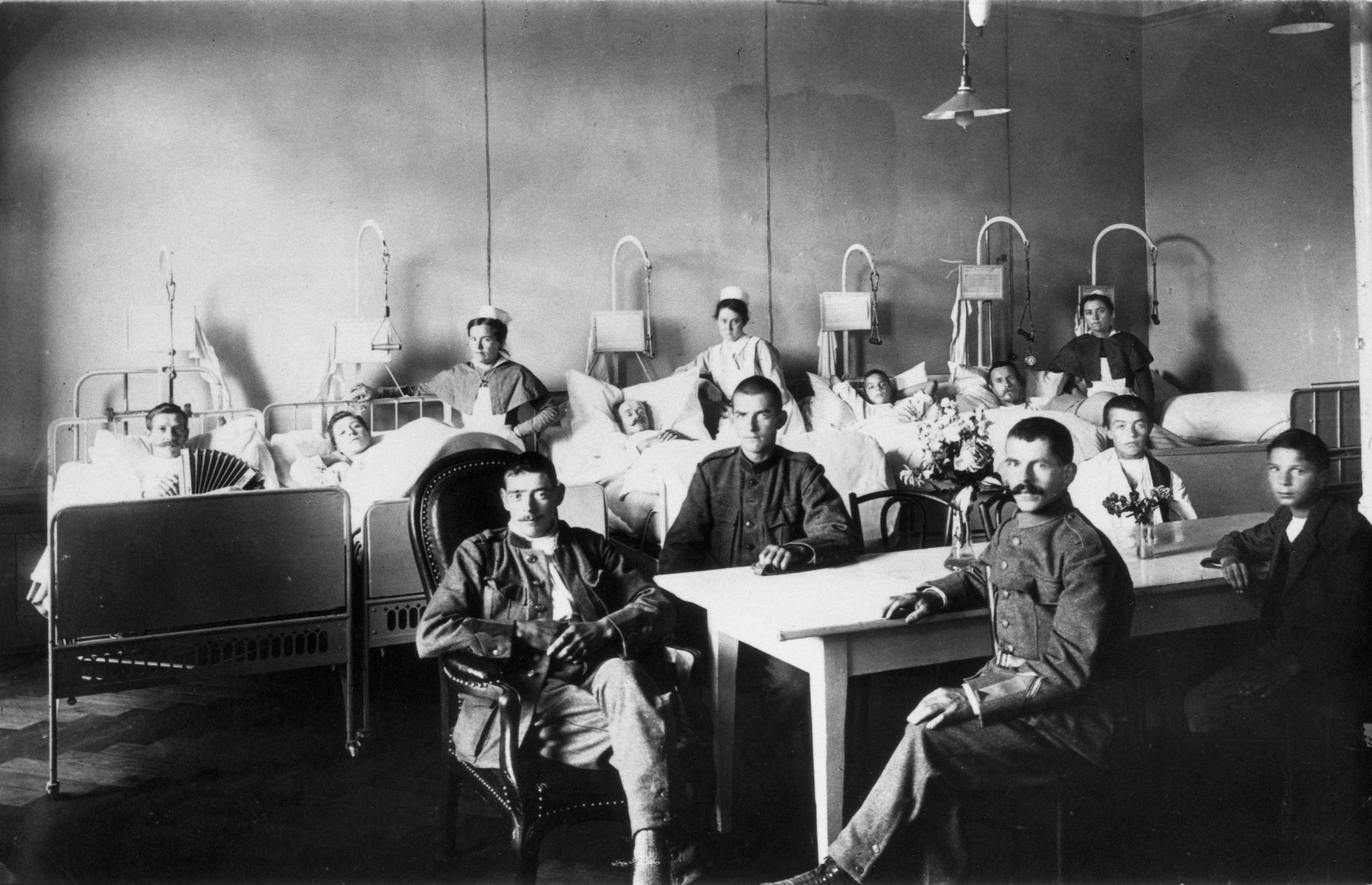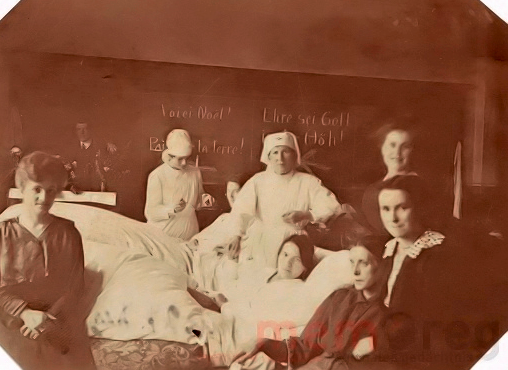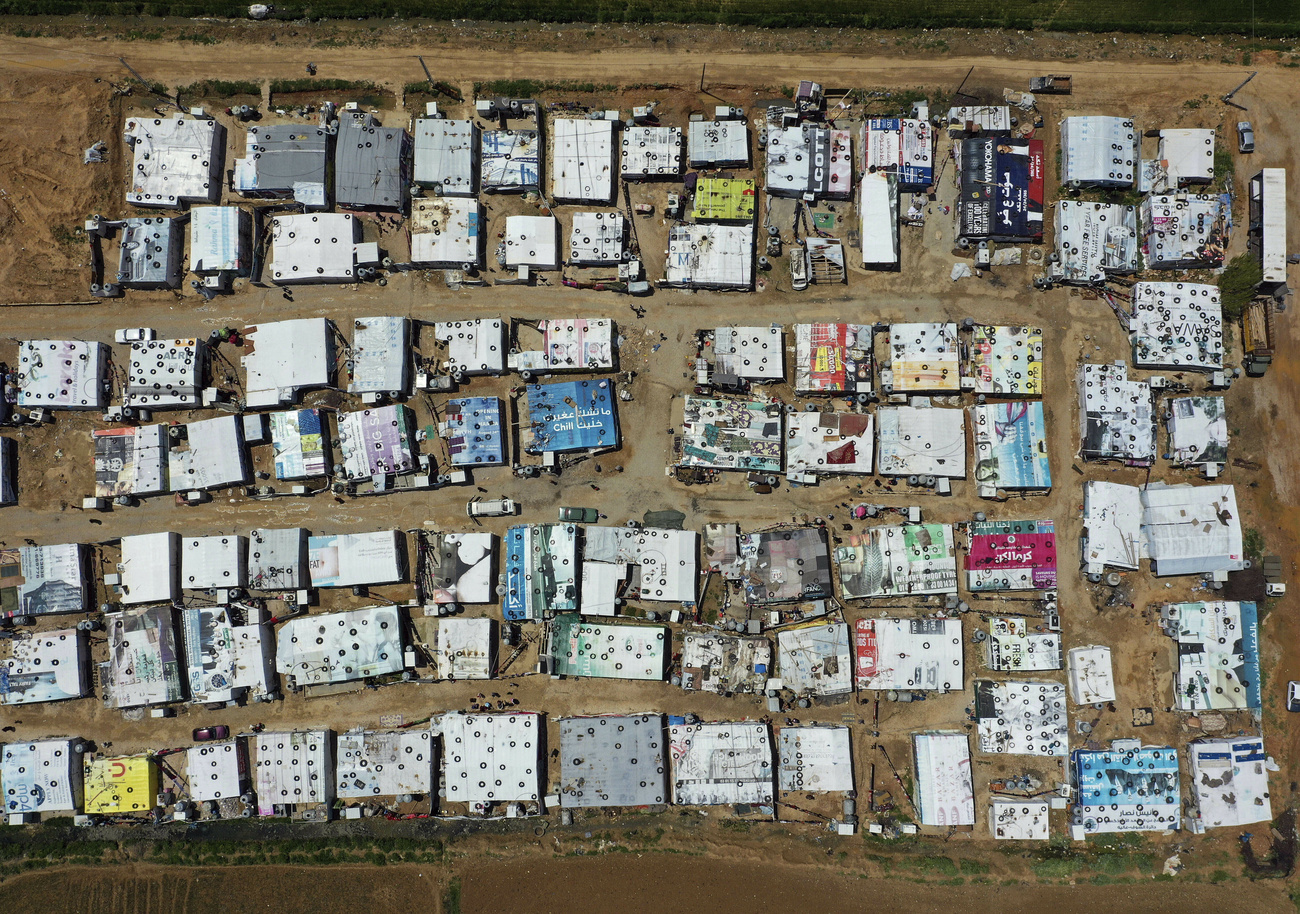
When Spanish flu hit Switzerland

The Spanish flu pandemic of 1918-1919 was one of the most devastating events in Swiss history. Around 25,000 people died and half of the population was infected. The deadliest wave struck in October 1918.
The flu first appeared in the Alpine country at the beginning of July 1918 among frontier troops near the Jura village of Bonfol, where the Swiss border touched the French-German front line. Between 40-80% of soldiers who had manned the Swiss frontiers fell sick. Commanders cancelled most of the training camps and sent the troops home. The disease spread quickly through western Switzerland but by September, seemed to have fizzled out.
Little did they suspect that a second, deadlier wave was on the horizon, which spread quickly throughout the entire country between the end of September and the end of November 1918. A third, milder wave was observed in January 1919, after which the virus finally petered out. Little was known about the nature of viral diseases.
In this video, we use archive footage and photos from the time to show how the Swiss tried to deal with the worst demographic catastrophe in their history.

More
The flu pandemic that killed 25,000
Young male victims
In all Swiss cantons apart from Ticino, the virus claimed more men than women, probably because the men were in closer contact with each other in barracks and taverns. Out of all the deaths, 60% were victims aged 20 to 40 years old and mortality tended to be higher outside urban centres.
Patients could die within hours of falling sick: often people suddenly bled from the nose or mouth. The dead had to be buried as soon as possible to prevent contagion.

The sick were cared for in hospitals set up by the army, and in sanatoriums in mountain districts. The Swiss Red Cross provided 742 nurses, most of whom worked at the nurses school, La Source in LausanneExternal link, and in the Red Cross Institute for NursingExternal link at the Lindenhof in Bern. 69 of them died from the flu. The surviving nurses at La Source were awarded military medals for their services in November 1919.
Switzerland closes down
There was nowhere to seek solace, company or entertainment: schools, churches and markets were closed. Dance, theatre and concert performances were cancelled. Barracks and school buildings were turned into emergency hospitals.
The population was asked to donate blankets and beds, lend doctors their cars, volunteer their services. All sorts of miracle cures against the flu were advertised: soaps, mouthwashes and nose ointments, even vacuum cleaners to rid the air of germs. It was rumoured that the consumption of tobacco and alcohol helped guard against and treat the flu. Here you see a product to disinfect telephones.

How well-prepared was Switzerland?
The pandemic brought Switzerland to the brink of civil war over the inadequacy of the official response. The army medical corps was accused of being poorly prepared for a pandemic, and lacking reasonable accommodation, transport and drugs. There was such an outcry in the media about these disastrous conditions that a commission of inquiry was set up. This did not lead to an improvement in the conditions, but it did calm public anger.
Despite the high number of casualties, there is little to help the Swiss remember and reflect on their losses. There is no day of remembrance. Historian Jakob Tanner wrote in the NZZ newspaper that the 1920s was a period of domestic tension following the national strike of November 1918. He concludes that there was little mental space left to commemorate an infectious disease, however devastating it was.

In compliance with the JTI standards
More: SWI swissinfo.ch certified by the Journalism Trust Initiative
































You can find an overview of ongoing debates with our journalists here . Please join us!
If you want to start a conversation about a topic raised in this article or want to report factual errors, email us at english@swissinfo.ch.